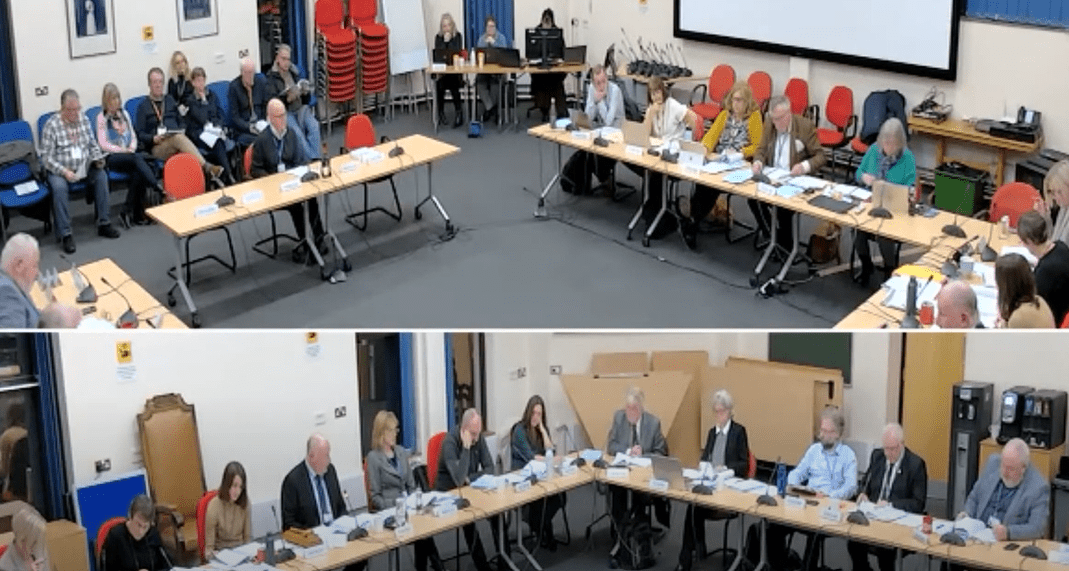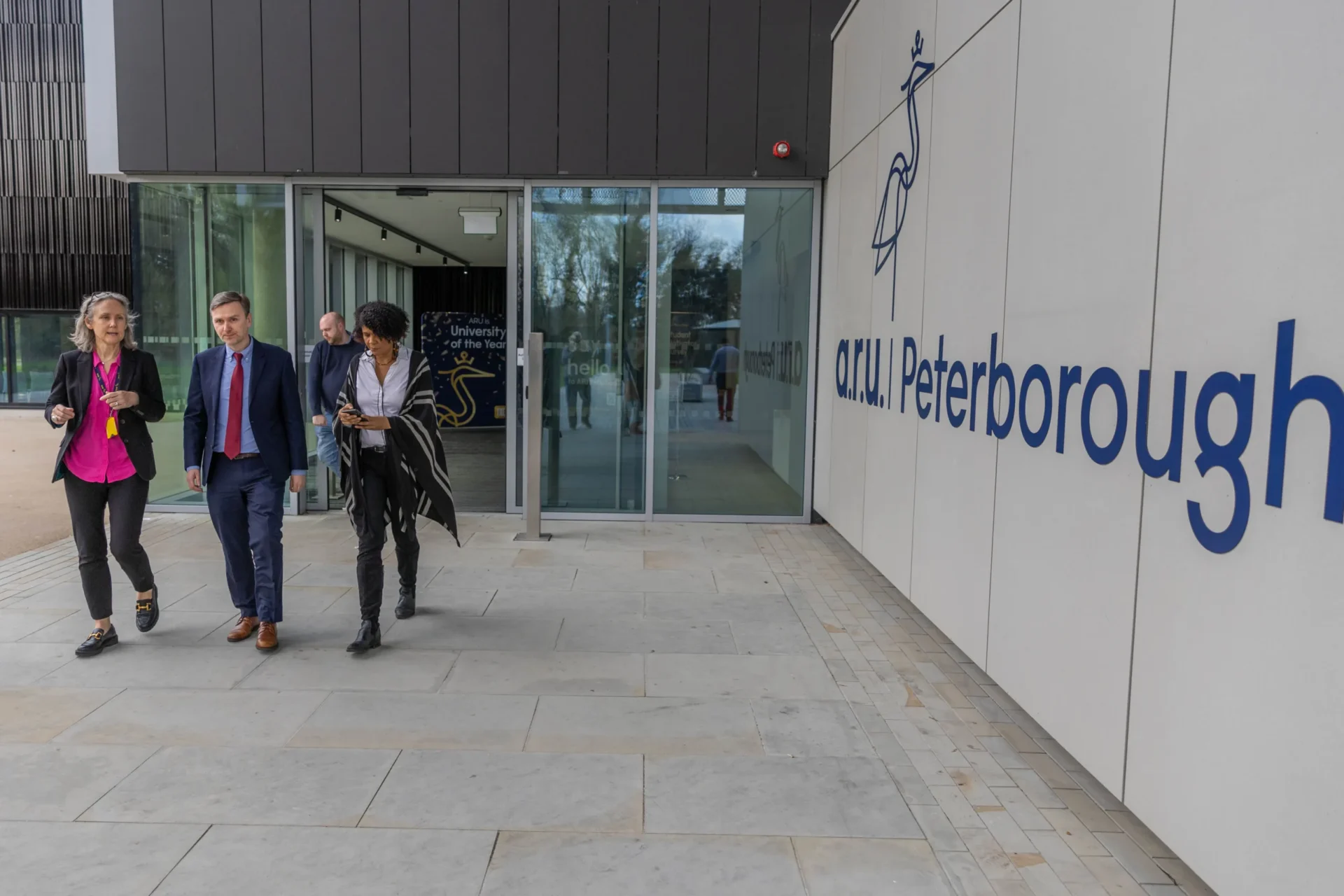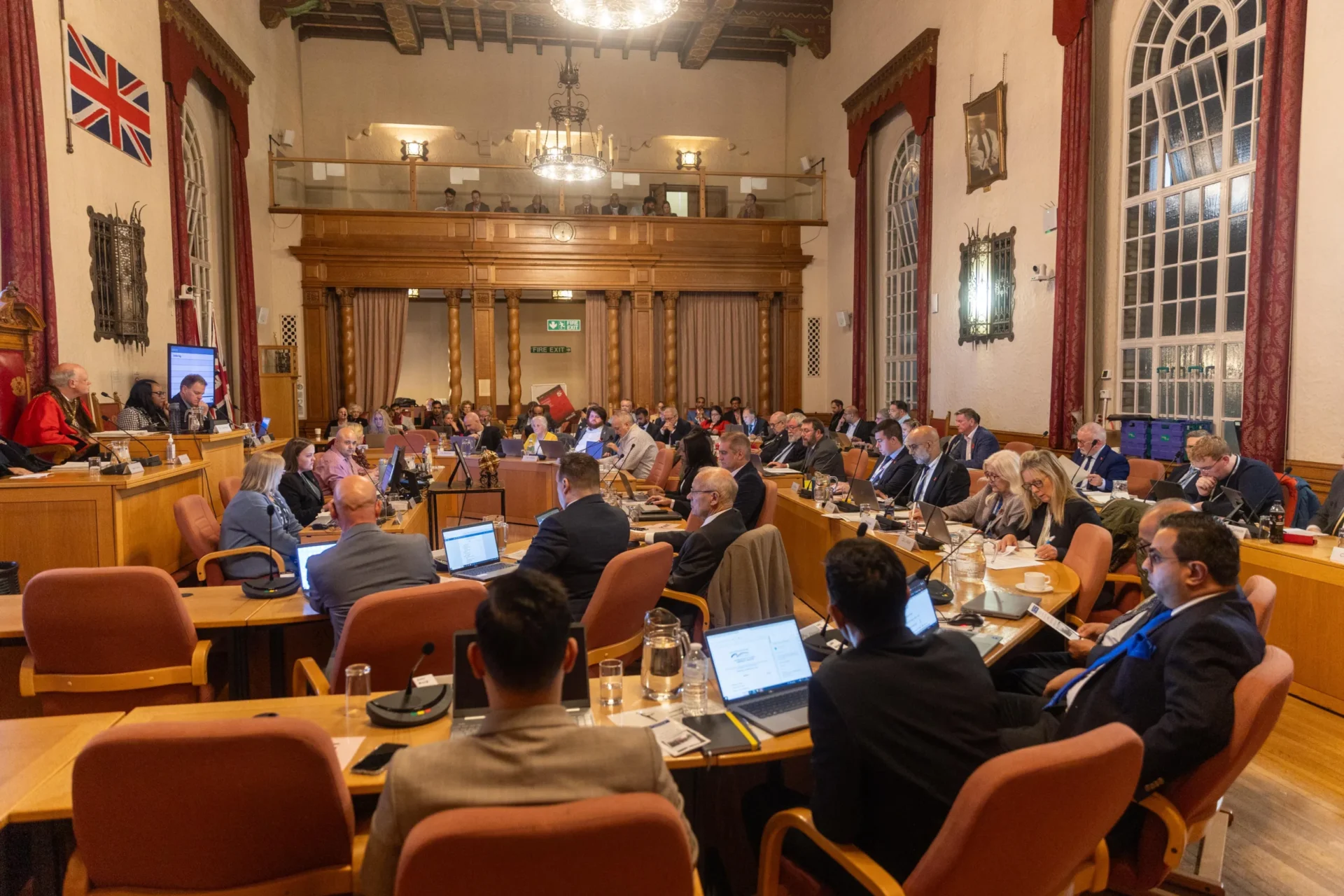An independent review is recommending the 28 members of East Cambridgeshire District Council get a 12 per cent increase in their allowance. It would mean each councillor, before ‘extras’ are added, will see their annual allowance rise from £6,230.29 to £6,977.93.
But there are other increases on the way for the council leader and the opposition leader, big rises for some councillors who chair committees, and a jump in subsistence allowances.
It means, for example, a councillor claiming an evening meal will see a 60 per cent rise from £12.50 to £20 in the amount they can claim.
The current leader of the council, Anna Bailey, will see her SRA (Special Responsibility Allowance) rise from £10,169.30 to £12,611.63 a year and as a member of the Cambridgeshire and Peterborough Combined Authority (CAPCA) her annual allowance will rise from £5,649.62 to £5,932.10.
The scheme of allowances recommended by the IRP (Independent Remuneration Panel) would cost approximately an additional £71,998.21 per annum, compared with the existing allowances scheme, based upon acceptance of all of the IRP recommendations.
But the report – to be presented to next Tuesday’s full council meeting – has a surprise for one unidentified councillor who has moved away from the district since winning a seat in May 2023.
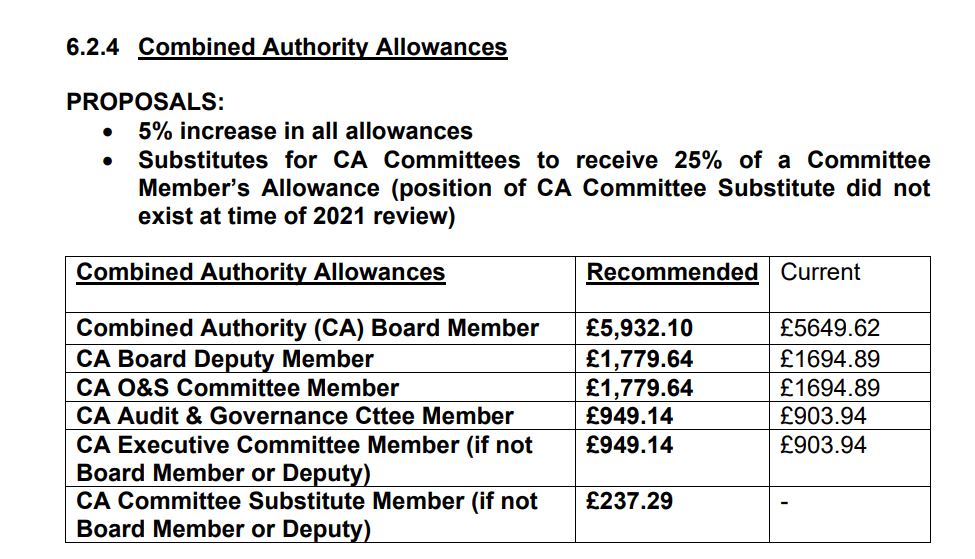
The independent panel’s report says it had been “brought to our attention” about the out of area councillor and so they believe the council needs to clarify travel expenses.
The report says councillors can claim mileage for travelling to council meetings but for more discretionary ‘approved duties’ such as attending a parish or ward meeting, mileage should only be within the district.
They have suggested a designated local address must be used and “this can be a temporary address used by the councillor or the council offices if no other address is used: this would be consistent with Inland Revenue rules”.
The panel says that quizzing councillors during their review, revealed that the reduction in number of the district councillors from 39 to 28 from 2019 onwards “has resulted in a significant increase in the workloads of councillors in terms of the volume, range, and complexity of the duties that they are required to undertake.
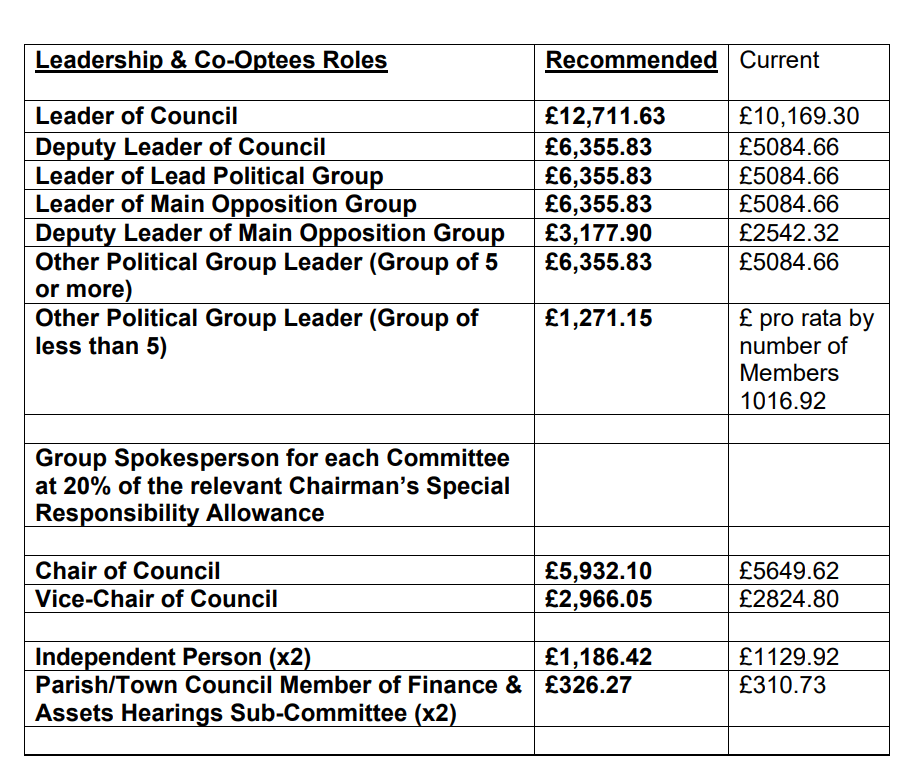
“In addition, the greater use of social media has resulted in councillors being subjected to a higher and more immediate level of public comment, criticism and scrutiny and has put them in greater danger of personal intimidation and abuse”.
The report says: “Public opinion of national and local politicians generally seems to be very negative and there seems to be limited public awareness of the nature and complexity of the role and the time spent by district councillors on their duties as a councillor.
“The public also do not realise the low level of allowances/expenses received by local councillors.”
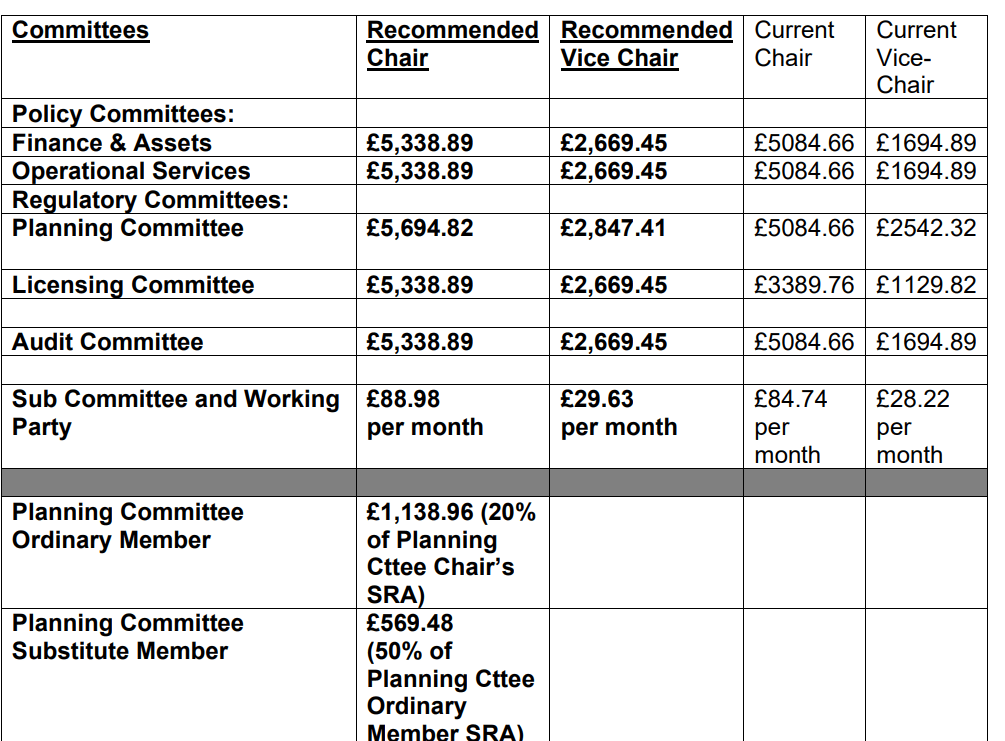
The review panel says the limited increases in the level of the basic allowance at East Cambridgeshire District Council since 2019, means that this has fallen behind in comparison with other councils locally and nationally “and also having regard to the economic situation within the country.The review panel says the limited increases in the level of the basic allowance since 2019, means that this has fallen behind in comparison with other councils locally and nationally “and also having regard to the economic situation within the country.
“This means that, even allowing for the assumption of a high element of voluntary service contribution, the level of councillor allowances does not compare favourably with other benchmarks such as the minimum wage, etc”.
The IRP (Independent Remuneration Panel) says their questionnaire/interviews showed that the time spent on councillor duties (approx. 50 hours per month for a backbench Councillor) was similar to the findings of the previous IRPs, so this gave a reassurance of consistency.
A number of councillors told them of the large and complex volume of paperwork they were required to read and digest as part of their role.
“Many of the 12 new councillors elected in May 2023 (a large proportion of whom are younger and in employment) did not appreciate the level of commitment required to undertake their duties as a councillor and did not know what allowances would be paid to them,” says the report.

“Some are now experiencing difficulties in fitting-in their councillor role with their other commitments.
“The current allowances do not in any way recompense employed councillors for the time lost on council duties and the fact that they are taxable further penalises working councillors.
“In addition, the Central Government decision that the allowances should not be pensionable is a further disincentive which has been noted by the newer, younger councillors.”
The panel has recommend various tweaks to the allowance scheme including better payments for those on the planning committee which meets monthly and requires whole day site visits.
The IRP says that based on the National Living Wage (currently set at £10.42 per hour) councillors are barely achieving the minimum wage for the level of time that they are spending on their duties and for the complex, high profile, and sensitive roles that they are undertaking.
“This situation will worsen from 1 April 2024 when the National Living Wage rises to £11.44,” says their report.
It says the rationale behind a 12 per cent rise is to “address the fact that ECDC allowances slipping behind other district councils within the county and are significantly lower than those paid by the majority of other councils both regionally and nationally”.
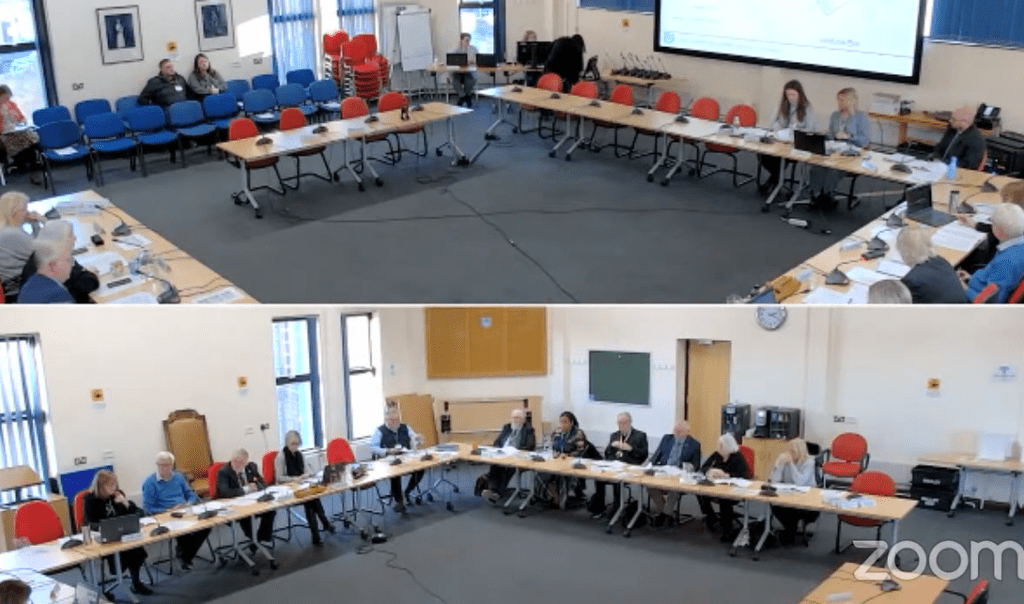
RECOMMENDATIONS IN BRIEF
1: 5 per cent increase in all SRAs with the exception of planning committee
2: Licensing committee SRAs to be the same as other committees (with the exception of planning committee)
3: 12 per cent increase in SRAs for chair and vice-chair of planning committee to reflect exceptional frequency and long periods of meetings
4: SRA for all ‘ordinary’ members of the planning committee (excluding chair and vice-chair of committee) of £1,138.96.
5: SRA for all substitute members of the planning committee of £569.48 each.
6: All committee vice-chairs’ SRAs be set at 50 per cent of chair’s allowance rather than 30%
7: 25 per cent increase in leadership/deputy leadership SRAs to reflect workload in a ‘2 party system’
8: 5 per cent increase in SRAs for chair and vice-chair of council and co optees allowances
9: Councillors be able to claim a maximum of 3 SRAs rather than current restriction to claiming a maximum of 2 SRAs
FACT FILE
The IRP comprises the following 4 lay members:
Richard Tyler (Chair of the Panel) – retired Chartered Accountant from Witchford.
He undertakes accountancy work for charity organisations locally.
Other community work includes Bishop Laney’s Charity, Treasurer of Rotary Club of Ely, Trustee of Ely Community Unit.
Richard Powell – retired teacher from Kings School, Ely.
Resident of Haddenham for many years before moving to Easton in 2022. Played for, and was chairman of, Sutton Cricket Club for many years. Sits on the Cambridgeshire Education Admissions Appeals Panel.
Margaret Clark – worked in the legal profession for many years (about 35) before retiring.
Littleport resident and since retiring has been working with the Ely Social Car Scheme and Care Network. Library visitor and also sits on the Cambridgeshire Education Admissions Appeals Panel.
Stanley Curtis – Originally trained as an electronics engineer.
Extensive experience in managing and developing both SMEs in the UK and large companies internationally in China, Malaysia and the USA. Owns a small 3 Agri-Tech business based in Littleport.
Chair of the Community Centre Trust in Ramsey where he lived before moving to Soham in 2016.
ALSO:
The Democratic Services Manager & Deputy Monitoring Officer acted as clerk and adviser to the panel.


